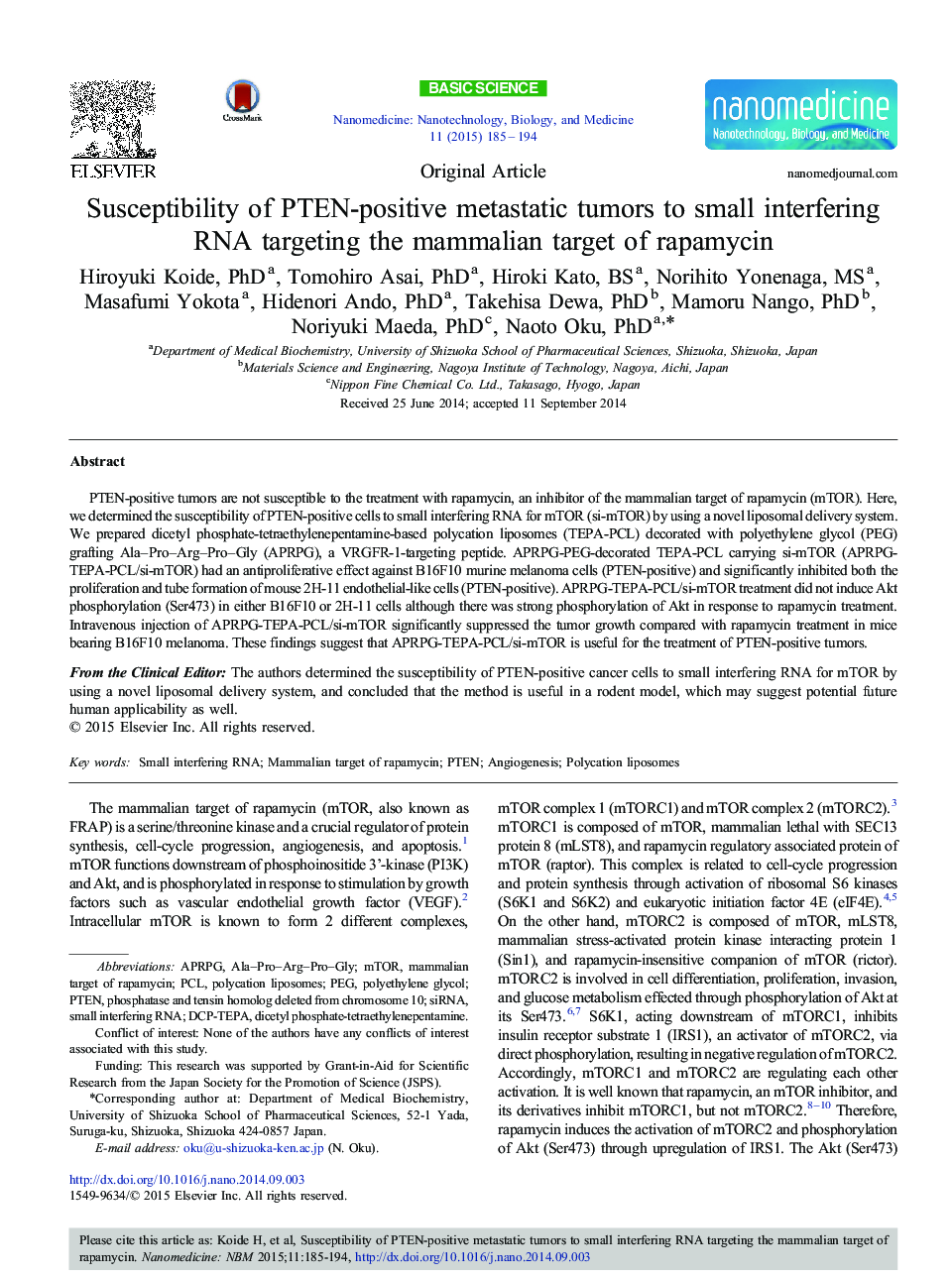| کد مقاله | کد نشریه | سال انتشار | مقاله انگلیسی | نسخه تمام متن |
|---|---|---|---|---|
| 877423 | 911025 | 2015 | 10 صفحه PDF | دانلود رایگان |

PTEN-positive tumors are not susceptible to the treatment with rapamycin, an inhibitor of the mammalian target of rapamycin (mTOR). Here, we determined the susceptibility of PTEN-positive cells to small interfering RNA for mTOR (si-mTOR) by using a novel liposomal delivery system. We prepared dicetyl phosphate-tetraethylenepentamine-based polycation liposomes (TEPA-PCL) decorated with polyethylene glycol (PEG) grafting Ala–Pro–Arg–Pro–Gly (APRPG), a VRGFR-1-targeting peptide. APRPG-PEG-decorated TEPA-PCL carrying si-mTOR (APRPG-TEPA-PCL/si-mTOR) had an antiproliferative effect against B16F10 murine melanoma cells (PTEN-positive) and significantly inhibited both the proliferation and tube formation of mouse 2H-11 endothelial-like cells (PTEN-positive). APRPG-TEPA-PCL/si-mTOR treatment did not induce Akt phosphorylation (Ser473) in either B16F10 or 2H-11 cells although there was strong phosphorylation of Akt in response to rapamycin treatment. Intravenous injection of APRPG-TEPA-PCL/si-mTOR significantly suppressed the tumor growth compared with rapamycin treatment in mice bearing B16F10 melanoma. These findings suggest that APRPG-TEPA-PCL/si-mTOR is useful for the treatment of PTEN-positive tumors.From the Clinical EditorThe authors determined the susceptibility of PTEN-positive cancer cells to small interfering RNA for mTOR by using a novel liposomal delivery system, and concluded that the method is useful in a rodent model, which may suggest potential future human applicability as well.
PTEN-positive cancer cells are less susceptibility to a mammalian target of rapamycin (mTOR) inhibitor such as rapamycin and its analog because they inhibit only mTOR complex 1 (mTORC1). However, small interfering RNA (siRNA) against mTOR (si-mTOR) can inhibit both mTORC1 and mTORC2 signalings. The present study demonstrates that knockdown with si-mTOR significantly inhibited PTEN-positive lung metastatic tumor growth in vivo compared with rapamycin treatment. This study proposes a novel therapeutic strategy for rapamycin-insensitive cancers.Figure optionsDownload high-quality image (88 K)Download as PowerPoint slide
Journal: Nanomedicine: Nanotechnology, Biology and Medicine - Volume 11, Issue 1, January 2015, Pages 185–194